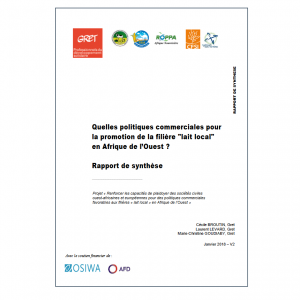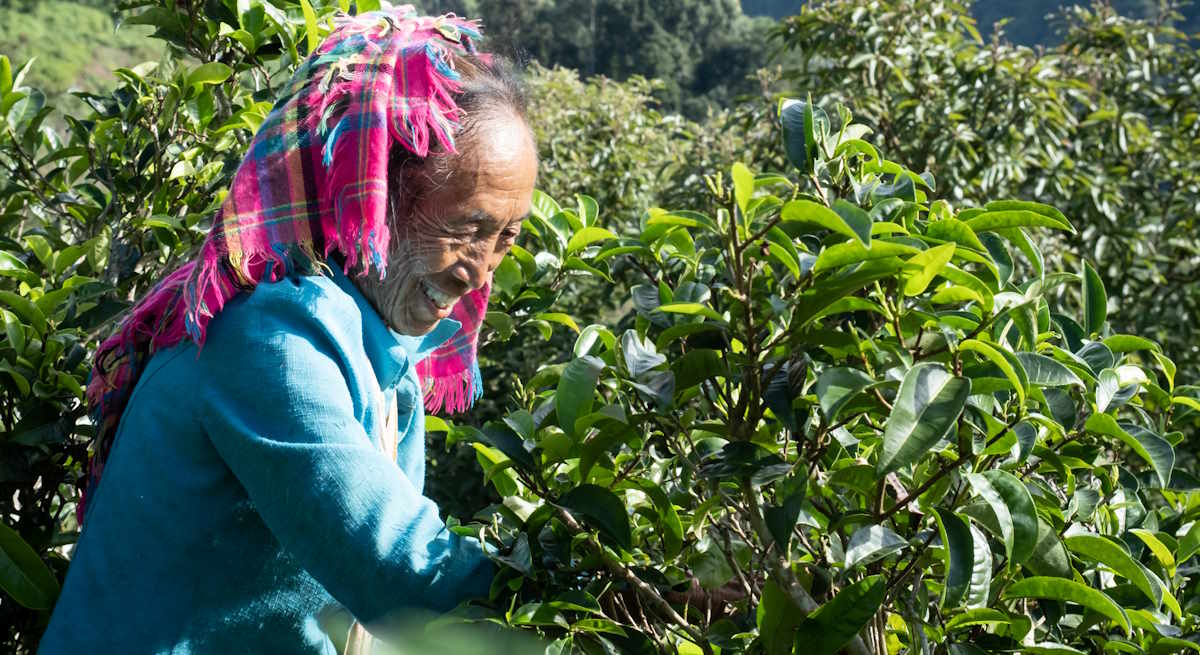To mark the publication of the study entitled “Quelles politiques commerciales pour la promotion du lait local en Afrique de l’Ouest ?” * (Which commercial policies for the promotion of “local milk” in West Africa?), two of the document’s three authors, Laurent Levard and Cécile Broutin, agro-economists with GRET, answered our questions on the development of the milk value chain in West Africa and the challenges it faces.
What are the challenges facing the milk value chain in West Africa?
Cécile Broutin: Production and marketing of milk in West Africa are an integral part of livestock farming families’ economy and way of life. The value chain features certain growth potential, with a significant herd, a dynamic processing sector and rapidly increasing market opportunities generated by demographic and urban growth. This local milk value chain produces approximately half of the milk consumed in the region, whether in liquid milk form or in processed products. It is, however, confronted with numerous internal difficulties causing significant hindrances to its development:
- low milk productivity of livestock farms, due to their focus on “meat” and difficulties to properly feed herds throughout the year;
- insufficient development of processing industries and local milk value chains;
- competition from powdered milk imports, especially powdered milk to which vegetable fats have been added.
The dependency of the region on imports could decrease in the future, in a context where consumption requirements are growing and protection of the regional market is poor.
How can this study be useful for the various stakeholders in the value chain?
Laurent Levard: This study was commissioned by the French committee for international solidarity (CFSI) (in french only) and was co-coordinated by three regional farmer and livestock breeder organisations (the Billital Maroobé network – RBM (in French only), the Association for the promotion of livestock farming in the Sahel and the Savannah – Apess (in French only) and the Network of farmers’ and agricultural producers’ organisations of West Africa – ROPPA) (in French only), and also by the Engineers without borders association. This study makes it possible for the various stakeholders to benefit from systematic analysis of the situation and the difficulties that can be encountered at each stage of the value chain. In addition, it highlights and analyses a certain number of suggestions in terms of public policies, which can be used in advocacy actions.
What are the main recommendations made by this study?
Laurent Levard: To help the local milk value chain to develop in West Africa, public policies must act in parallel on various factors: provide support for structuring of the value chain and consultation between stakeholders, provide the latter with technical and financial support, work on the quality and promotion of products generated by the local milk value chain, and improve the competitiveness-price of local milk value chain products in order to compete with imports by appropriately combining trade protection measures and taxation measures.
* This study was written by Cécile Broutin, Laurent Levard and Marie-Christine Goudiaby, with financial support from the Agence française de développement (AFD) and the Open Society Initiative for West Africa foundation (OSIWA).






